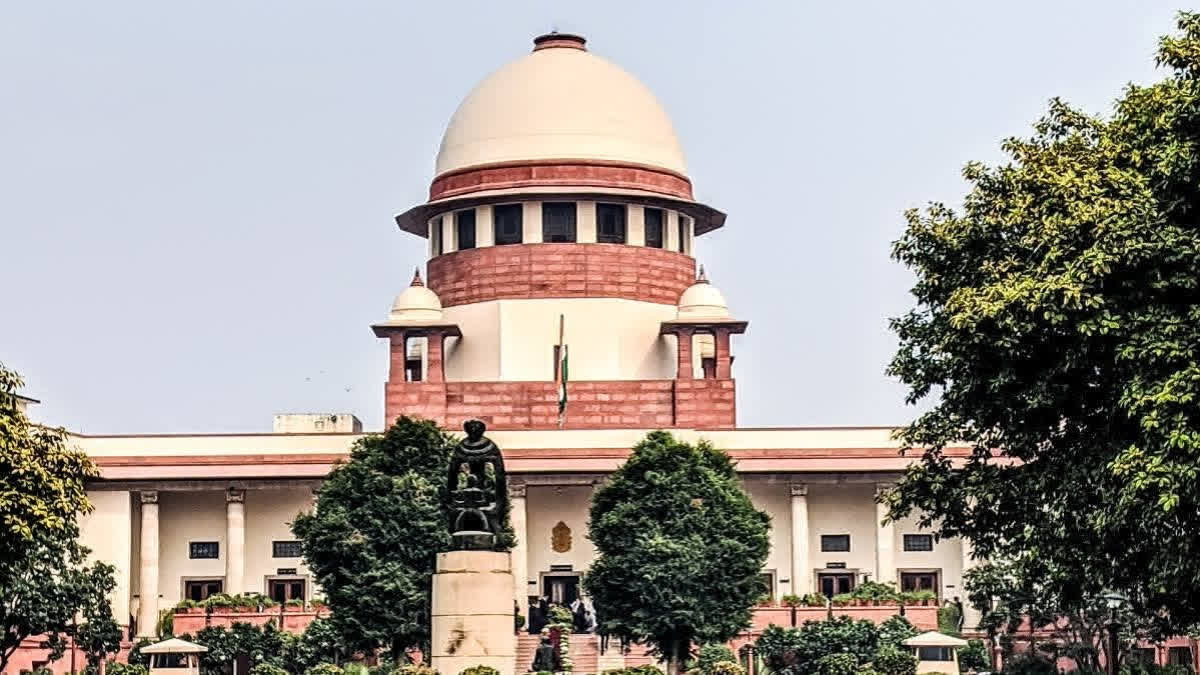New Delhi: The Supreme Court on Thursday said the Hindu women’s right to maintenance is not by virtue of statute, but is found in Shastric Hindu law, and the maintenance has to be adequate so that she is able to maintain the ability to continue to live the life, similar to what she once lived.
A bench comprising Justices C T Ravikumar and Sanjay Karol, citing the apex court’s judgments, said that the property given in lieu of maintenance would solidify into absolute ownership by the action of Section 14(1) of the Hindu Succession Act (HAS), 1956.
"In other words, the right of maintenance on its own is apposite for such property to transfer into her sole, unquestionable, and absolute right," said the bench.
Justice Karol, who authored the judgment on behalf of the bench, said: "The Hindu women’s right to maintenance is not by virtue of statute, but is found in Shastric Hindu law; maintenance has to be proper, appropriate and adequate, giving the woman so maintained the ability to continue to live the life, similar to what she once lived”.
The bench said that the very right to receive maintenance is sufficient title to enable the ripening of possession into full ownership if she is in possession of the property in lieu of maintenance.
"The right of maintenance is sufficient for the property given in lieu thereof to transform into absolute ownership, by way of Section 14(1) of the HSA, 1956," said the bench.
The apex court dismissed a plea by legal representatives of Kallakuri Pattabhiramaswamy against a 2009 verdict of the Andhra Pradesh High Court against a decree of 1990 by subordinate judge, Ramachandrapuram.
The bench said the simple question in this appeal is whether the appellant-defendants are entitled to the entire property, in line with the position that Veerabhadramma, by virtue of the Hindu Succession Act of 1956, would have absolute rights over the subject property and, therefore, be able to bequeath the same by way of will to her successors.
The bench said, in the case, Veerabhadramma was given the absolute right to her property, qua 2.09 cents of land and a life interest in respect of 3.55 cents of land.
"This has been consistently held by the courts below. The appellant-defendants, however, want this court to interfere with the said concurrent findings and hold that by virtue of Section 14(1) of the HSA, 1956, Smt Veerabhadramma became the full and absolute owner of all properties, which would necessarily include the disputed land of 3.55 Cents," the bench noted in its verdict.
“The findings of the courts below, as facts are clear that absolute rights extended only to 2.09 Cents. The record does not bring forth any reason for this court to take a different view. The Shastric right of maintenance was given statutory recognition by two pre-constitutional legislations, as noted by V. Tulsamma (1977) and Raghubar Singh (1998), stand satisfied thereby," said Justice Karol.
Concluding the verdict, the bench said: "The partition deed of 1933, it has been held, is clear that 3.55 Cents of land would be enjoyed by Veerabhadramma as a life interest and thereafter would devolve upon the two lines of succession, i.e., the sons of late Kallakuri Swami through his first wife and also his second wife. In that view of the matter, the appeal fails and is, accordingly, dismissed. Pending application, if any, shall stand disposed of".



